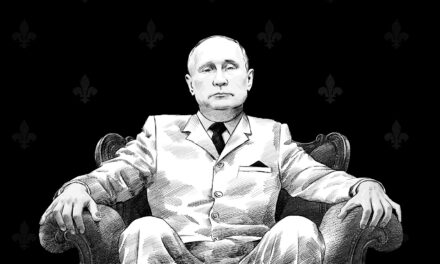The White House in Washington, D.C. Credit: Pixabay.
By MITCHELL BARD
JNS
What do we know about the next president’s Middle East policy? Not much. Whether you agree or disagree with Trump’s approach to the Middle East in the first term, there is no assurance it will be the same in the second term. Key architects of his Middle East policy, notably by his son-in-law and former senior adviser Jared Kushner, are not expected to be part of a second Trump administration.
Unlike Harris, Trump did not face protests or questions about what he would do about Gaza, and he never told us. Without expressing sympathy for the Palestinians, he did say, “Get your victory and get it over with. It has to stop, the killing has to stop.”
He told Netanyahu, “It has to get over with fast.”
“I will give Israel the support that it needs to win, but I do want them to win fast, wouldn’t it be nice if they could win fast? And we have to let them win fast. We will restore civility and peace to the Middle East.”
“I want to see the Middle East get back to peace and real peace, but a peace that’s going to be a lasting peace, and that’s going to happen,” he said, suggesting that he could bring it about because he “was respected over there” and had “great relationships with so many.” It was unclear who he was talking about.
He told Netanyahu, “If we win, it will be very simple. It’s all going to work out and very quickly.”
Trump also warned that Israel would be annihilated if Harris was elected, and that he would be Israel’s “big protector.”
He never explained what his policy would be to either help Israel win the war or what he would do if it didn’t end as quickly as he wanted, that is, before his inauguration. He said he thought negotiations could free the hostages but didn’t mention any terms. He did say he believed “very few hostages” were alive.
Hoping to build on his most significant foreign policy success, Trump said he would bring at least a dozen other countries into the Abraham Accords. More eye-opening was his inclusion of Iran among them. “I would have gotten, in my opinion, a 50/50 chance, maybe more than that, Iran would have been in the Abraham Accords. … They wanted to make a deal so bad until we had that phony election.”
Netanyahu appeared on the outs with Trump after the prime minister infuriated the former president for his victory in the “rigged election.” Trump also said that Netanyahu had “dropped out” of a joint operation to kill Qassem Soleimani, Iranian commander of Iran’s Islamic Revolutionary Guard Corps’ Quds Force, in January 2020. Trump blamed Netanyahu for the Hamas attack occurring on his watch and for his conduct of the war. Ironically, Trump annoyed Netanyahu by thanking Palestinian Authority leader Mahmoud Abbas for sending him a get well soon message after the attempted assassination. Netanyahu later went to Mar-a-Lago, and the two began to speak on the telephone, suggesting all was well again.
Trump supporters were thrilled that he pulled out of the Iran nuclear agreement in May 2018 but have been silent regarding his new position. “We have to make a deal because the consequences are impossible,” he said.
Like Harris, he said he wouldn’t allow Iran to acquire a nuclear weapon and indicated that he expected Israel to take care of the problem. In response to a question about Biden pressuring Israel not to attack Iran’s nuclear facilities, he said: “That’s the thing you want to hit right? I said I think he’s got that wrong, isn’t that the one you’re supposed to hit? It’s the biggest risk we have, nuclear weapons, the power of nuclear weapons. When they asked him that question the answer should have been, ‘Hit the nuclear first and worry about the rest later.’”
After the second assassination attempt, Trump said, “If I were the president, I would inform the threatening country, in this case Iran, that if you do anything to harm this person, we are going to blow your largest cities and the country itself to smithereens.”
Neither candidate had offered a strategy or vision for the region or how they would address the myriad problems unrelated to Israel or Iran, such as countering Russian and Chinese influence, Turkish belligerence and Qatar’s malevolent behavior.










